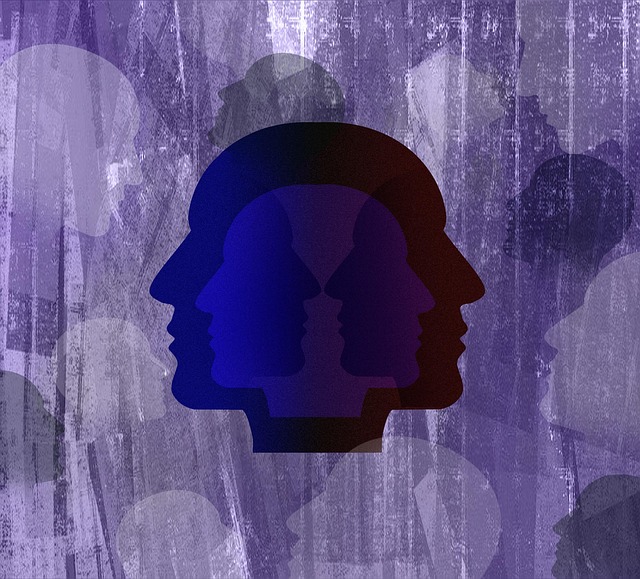In today's digital age, mental wellness is a growing priority, especially post-pandemic. Mobile apps like Parker Abuse Survivors Therapy (PAST) are revolutionizing therapy access and positive mental health practices. PAST offers tailored sessions, social skills training, and confidence boosting exercises, integrating podcasts for educational support. Apps provide convenient personal growth tools, educating users on stress management and self-care. Developing sensitive yet functional PAST apps prioritizes user privacy, safety, and ethical data handling, fostering trust and empowering trauma survivors' healing journeys.
In today’s fast-paced world, mental wellness is a cornerstone of overall well-being. With increasing awareness about the prevalence of issues like anxiety, depression, and trauma, digital solutions are in high demand. This article explores the development of mental wellness apps, focusing on their role in supporting Parker Abuse Survivors through therapy. We delve into evidence-based practices, ethical considerations, and design strategies to create effective tools for personal growth and recovery. By integrating accessible tech with proven therapeutic methods, these apps offer hope and healing.
- Understanding Mental Health and Wellness in Today's World
- The Role of Apps in Promoting Personal Growth and Recovery
- Designing an Effective App for Survivors of Parker Abuse
- Integrating Evidence-Based Therapies into Digital Platforms
- Ensuring Privacy, Safety, and Ethical Considerations in App Development
Understanding Mental Health and Wellness in Today's World

In today’s fast-paced digital world, mental wellness has emerged as a paramount concern, with an increasing awareness of its significance in overall well-being. The global pandemic and subsequent social isolations have further highlighted the need for robust tools to support mental health. This shift is evident in the growing demand for accessible and effective solutions, such as mobile applications designed to enhance therapy and promote positive mental wellness practices. For instance, Parker Abuse Survivors Therapy (PAST) has pioneered digital approaches, offering innovative ways to cater to survivors’ unique needs, specifically focusing on trauma recovery.
Understanding mental health involves recognizing that it encompasses not just the absence of disorder but also emotional, psychological, and social well-being. This expansive perspective encourages the development of apps that facilitate a holistic approach, including features like Social Skills Training and Confidence Boosting exercises. Furthermore, the integration of Mental Wellness Podcast Series Production within these platforms can provide additional support through educational content, sharing stories of resilience, and offering practical tips for managing stress and anxiety.
The Role of Apps in Promoting Personal Growth and Recovery

Apps have emerged as powerful tools to promote personal growth and recovery, especially for those navigating mental health challenges. A well-designed app can provide accessible and tailored support, offering a sense of control and empowerment to users. For instance, apps focused on therapy and counseling allow individuals to engage in Parker Abuse Survivors Therapy (PAT), a specialized form of treatment, at their own pace and convenience. PAT sessions can be integrated with other mental wellness practices such as journaling exercises guided by the app, which helps users reflect and process their emotions effectively.
Moreover, these apps often incorporate features that facilitate mental health education, providing resources and interactive guidance on various topics like stress management, anxiety reduction, and self-care routines. The integration of Mental Wellness Podcast Series Production within these platforms can offer diverse perspectives and expert insights, enhancing the overall user experience. By combining different components such as therapy, journaling, and educational content, apps create a comprehensive environment that supports individuals in their journey towards improved mental wellness.
Designing an Effective App for Survivors of Parker Abuse

Designing an app tailored for Parker Abuse Survivors Therapy is a nuanced and sensitive task. The application should serve as a safe space, offering tools to navigate trauma and promote healing. Incorporating features like guided meditation, journal prompts, and access to a supportive community can significantly aid in burnout prevention and anxiety relief for survivors. By integrating evidence-based practices and ensuring user anonymity, the app can foster a sense of empowerment and build confidence among users.
A well-designed interface should be intuitive, allowing users to easily access resources based on their specific needs. Incorporating features like personalized progress tracking, reminders for self-care activities, and opportunities for virtual peer support can enhance the overall user experience. Moreover, regular updates with fresh content, including articles on resilience, coping strategies, and success stories, will keep users engaged while providing them with valuable tools to manage their mental wellness effectively.
Integrating Evidence-Based Therapies into Digital Platforms

Integrating evidence-based therapies into digital platforms offers a promising approach to mental wellness app development. One such example is Parker Abuse Survivors Therapy (PAST), designed to support individuals who have experienced trauma. By adapting therapeutic techniques proven effective in traditional settings, apps can provide accessible and tailored interventions to users. PAST focuses on building resilience, utilizing cognitive-behavioral strategies to challenge negative thought patterns and promote healthy coping mechanisms.
These digital platforms not only cater to individual needs but also foster a sense of community through peer support groups, encouraging emotional well-being promotion techniques. The incorporation of mental health education programs within these apps equips users with the knowledge and skills to manage their mental health proactively. This shift towards evidence-based practices in app development ensures that users receive reliable and effective tools for improving their emotional well-being.
Ensuring Privacy, Safety, and Ethical Considerations in App Development

In the development of mental wellness apps, prioritizing privacy, safety, and ethical considerations is paramount. Users often share intimate details about their feelings, experiences, and struggles when using such applications. Therefore, developers must implement robust data encryption methods to safeguard user information from unauthorized access or breaches. Anonymity options should also be available to protect users’ identities, especially those who are vulnerable, like Parker Abuse Survivors Therapy clients, ensuring they can seek help without fear of exposure.
Additionally, app development teams should adhere to ethical guidelines and standards, particularly when dealing with sensitive topics. This includes transparent data collection practices, clear user consent mechanisms, and responsible use of personal information. Incorporating features that promote positive mental health, such as self-esteem improvement exercises or burnout prevention strategies, can enhance the overall effectiveness of these apps while ensuring users’ well-being is at the forefront of the development process.
The development of mental wellness apps offers a promising avenue for supporting individuals, especially those who have experienced trauma like Parker Abuse. By integrating evidence-based therapies and prioritizing privacy, safety, and ethical considerations, we can create tools that empower users on their path to recovery. Apps designed with an understanding of today’s mental health landscape can foster personal growth, provide accessible resources, and ultimately enhance the well-being of users, particularly survivors of Parker Abuse, offering them a digital haven for support and healing.














